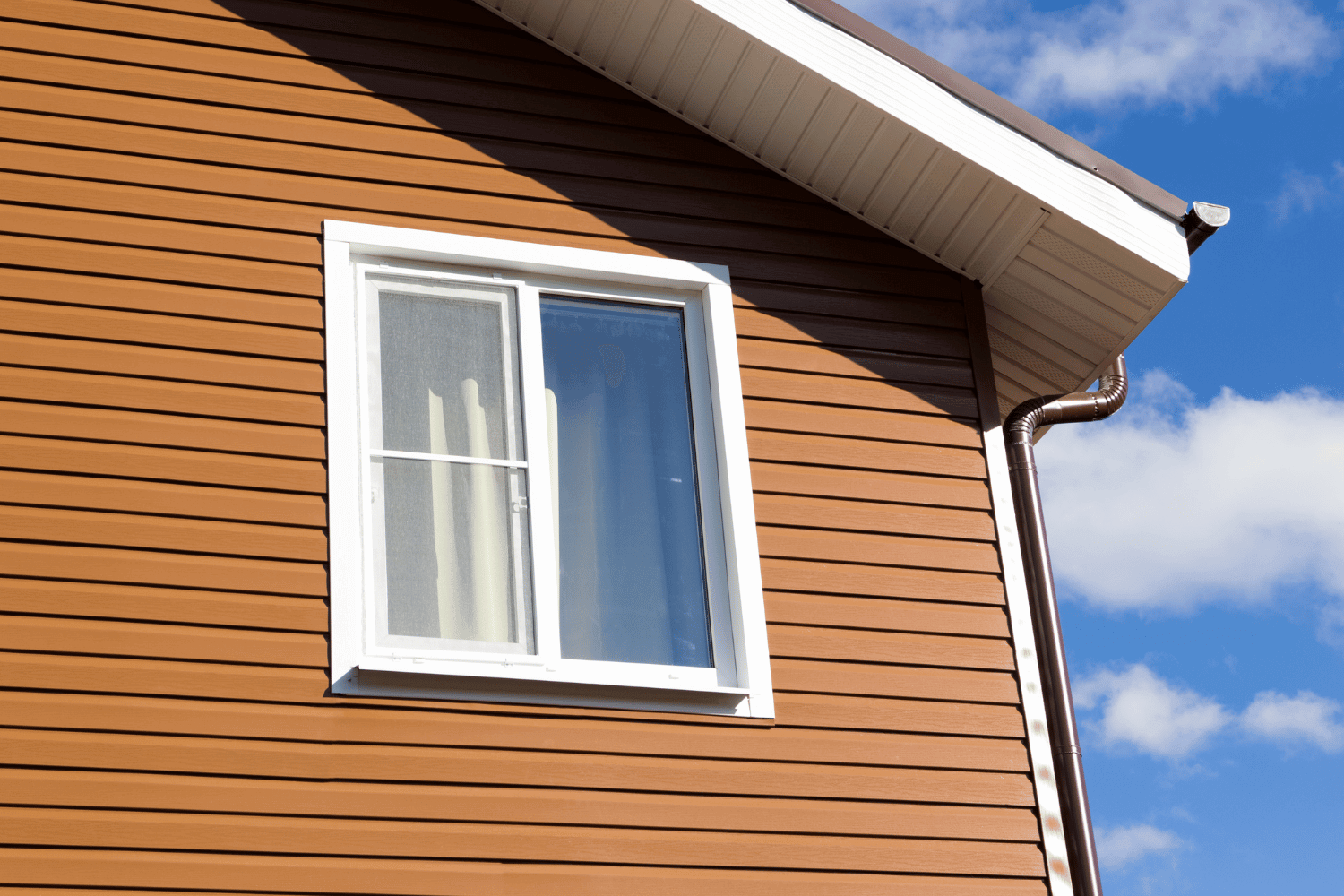Vinyl windows typically last 20 to 40 years, depending on quality and installation. In this guide, we will explain the factors affecting their lifespan and address the question of how long does vinyl windows last, as well as how to maintain them.
Key Takeaways
-
Vinyl windows are a popular choice due to their durability, energy efficiency, and low maintenance, typically lasting between 20 to 40 years.
-
Factors like climate, sun exposure, and quality of installation significantly impact the lifespan of vinyl windows, making proper care and installation crucial.
-
Regular cleaning, inspections, and protective measures against UV damage can extend the life of vinyl windows, ensuring they remain functional and visually appealing.
Understanding Vinyl Windows

An illustration depicting various types of vinyl windows, showcasing their unique features.
For over 30 years, vinyl windows have been the top choice for homeowners, becoming the most popular window replacement option. So, what makes vinyl windows special? Vinyl windows are made from polyvinyl chloride (PVC), a strong, versatile plastic that resists environmental stresses. Most are specifically constructed from unplasticized polyvinyl chloride (uPVC), a more durable form of PVC.
Homeowners favor vinyl windows for their durability and low maintenance. They resist fading, weather damage, and decomposition, ensuring long life. Additionally, vinyl windows are cost-effective and energy-efficient, enhancing home comfort and value. Often called the ‘infrastructure plastic,’ vinyl is widely used in construction for these reasons.
When considering window replacements, long vinyl windows should be a top option. They offer lasting performance and come in various styles and finishes to suit any home design. Their blend of durability, energy efficiency, and aesthetic appeal makes them ideal for modern homeowners with vinyl window frames.
Average Lifespan of Vinyl Windows

A diagram illustrating the average lifespan of vinyl windows compared to other window materials
Understanding the lifespan of new windows is crucial. Vinyl windows generally last between 20 to 40 years, a key reason they are popular among homeowners. Manufacturers offer warranties of 15 to 25 years, indicating how long do vinyl windows are expected to last.
Several factors, such as material quality, climate, and installation quality, influence vinyl windows’ lifespan. Premium vinyl windows, made from top-grade materials and professionally installed, can last over 30 years, often outlasting aluminum and wood alternatives. However, windows older than 20 years may show signs of decreased efficiency, suggesting replacement may be needed.
Comparing vinyl windows to wood and aluminum highlights their superior longevity and cost-effectiveness. Wood windows typically last 15-20 years and require significant maintenance to prevent decay and warping, whereas vinyl windows are more durable and low-maintenance.
Similarly, aluminum windows, although lightweight and robust, are prone to denting, scratching, and corrosion. This makes vinyl a more reliable choice for long-term performance.
Key Factors Influencing Vinyl Window Longevity
The longevity of vinyl windows depends on factors such as climate, sun exposure, and installation quality. Being aware of these factors can help homeowners take steps to ensure their windows last as long as possible.
Let’s delve into each of these factors in more detail.
Climate Conditions
Climate conditions significantly affect the durability and longevity of vinyl windows. For example, severe temperature fluctuations can cause warping or shifting, especially in regions with extreme temperatures, leading to structural issues due to constant expansion and contraction.
High humidity can also speed up vinyl window deterioration, affecting their lifespan. In humid areas, proper sealing and maintenance are crucial to prevent moisture damage. Homeowners should consider reinforced, high-quality windows to withstand harsh conditions.
Sun Exposure
Sun exposure also significantly affects vinyl window longevity. Direct sunlight causes faster deterioration than shaded areas due to prolonged UV light exposure, which can break down vinyl material, leading to discoloration and reduced structural integrity.
Homeowners can use protective measures against UV rays to extend vinyl window lifespan. Applying protective films helps block harmful UV rays and preserve frame integrity. Installing awnings also provides a barrier against UV exposure, keeping windows cooler and extending their lifespan.
Quality of Installation
Proper installation is essential for vinyl window longevity and performance. Poor installation can cause gaps and drafts, reducing their lifespan. Ensure experienced professionals handle the installation.
Ask about the installation team’s experience and qualifications to guarantee proper window function and sealing. Proper installation ensures smooth operation and maintains energy efficiency by preventing air leaks, especially with casement windows.
Quality installation can save homeowners from costly repairs and replacements, making it a wise investment.
Maintenance Tips to Extend Vinyl Window Lifespan

An illustration showing maintenance tips for extending the lifespan of vinyl windows.
Proper maintenance can greatly extend the life of vinyl windows. Regular cleaning and inspections prevent damage and maintain functionality, while UV protective measures preserve their integrity.
Let’s explore these maintenance tips in more detail.
Regular Cleaning and Inspections
Regular maintenance is crucial for vinyl window upkeep. Clean them at least once a year, or preferably twice. Regular cleaning prevents dirt and mold buildup. Use a soft brush or cloth to remove dirt, avoiding harsh chemicals, abrasive materials, or excessive pressure to prevent frame damage.
During annual inspections, check for cracks, gaps, or loose components. Regular inspections catch potential damage early, preventing more significant issues later.
A protective sealant on the glass can shield vinyl windows from UV damage, while awnings offer additional protection.
Protecting Against UV Damage
Harsh UV rays can damage vinyl windows, causing fading and degradation. Applying protective films blocks harmful UV rays and preserves frame integrity, significantly extending window life and keeping them looking new longer.
Awnings provide an effective barrier against UV exposure, keeping vinyl windows cooler and extending their lifespan. Combining these protective measures ensures vinyl windows stay durable and functional, even in areas with intense sun exposure.
Comparing Vinyl Windows to Other Window Materials

An infographic comparing vinyl windows to wood, aluminum, and fiberglass windows.
When choosing vinyl windows, compare vinyl to other common window material to understand the benefits and drawbacks of each option, ensuring an informed decision.
Let’s look at how vinyl windows stack up against wood, aluminum, and fiberglass windows.
Vinyl vs Wood Windows
Vinyl windows generally outlast wood windows, which typically last 15-20 years and require significant maintenance due to susceptibility to mold, decay, and warping. This lower longevity and high maintenance cost make wood windows less cost-effective than vinyl windows last.
While wood windows offer a natural, classic look, vinyl windows are more durable and low-maintenance. Their cost-effectiveness and longevity make them an appealing choice for long-lasting replacement windows.
Vinyl vs Aluminum Windows
Vinyl and aluminum windows typically have a similar lifespan. However, aluminum windows are prone to denting, scratching, and corrosion, making vinyl a more durable long-term option.
Aluminum windows are generally less energy-efficient than vinyl windows and often have higher installation costs due to increased labor requirements. While aluminum windows are lightweight and robust, vinyl offers a better balance of durability, energy efficiency, and cost-effectiveness.
Vinyl vs Fiberglass Windows
Fiberglass windows may last longer than vinyl, but their higher cost can be unappealing. They are also more expensive and harder to install compared to vinyl windows.
Fiberglass windows are durable, resistant to warping, cracking, and deterioration, energy-efficient, and low-maintenance. Despite these advantages, the cost and installation complexity make vinyl windows a more accessible and practical choice for many homeowners.
Signs You Need Vinyl Window Replacement

An illustration showing signs that indicate vinyl window replacement is necessary.
Signs that indicate the need for vinyl window replacement include drafts, energy loss, and operational issues. Recognizing these early can help maintain home comfort and efficiency.
Let’s explore these signs in more detail.
Drafts and Energy Loss
Drafts around windows indicate failing seals and escaping energy. This can cause higher energy bills due to decreased insulation from worn-out window frames. Deteriorating vinyl windows lead to increased energy loss, evident from changes in heating and cooling efficiency.
Awareness of drafts and energy bills can prompt timely maintenance or replacement of vinyl windows, ensuring better energy efficiency and comfort. Addressing these issues promptly helps maintain energy efficiency and reduce unnecessary costs.
Operational Issues
Windows that stick or do not open may indicate underlying issues requiring replacement, affecting functionality and energy efficiency with windows installed.
Promptly addressing operational issues prevents further damage and enhances energy efficiency. Ensuring smooth window operation is key to maintaining home comfort and efficiency.
Choosing Quality Vinyl Windows
When choosing quality vinyl windows, consider factors like local climate, which significantly influence performance and durability. High-quality vinyl windows with heat-welded joints and premium materials withstand various weather conditions.
Warranties indicate the quality of both the product and installation. Look for companies offering product and workmanship warranties for comprehensive protection. Since warranties often don’t cover improper installation damage, choose an experienced installer.
Additionally, select windows with the EnergyStar® label to confirm energy efficiency. Vinyl windows’ aesthetic appeal can also enhance curb appeal and increase market value. Considering these factors ensures you choose durable, energy-efficient, and visually appealing vinyl windows.
Summary
In summary, vinyl windows offer a compelling combination of durability, low maintenance, and energy efficiency, making them an excellent choice for homeowners. Understanding the factors that influence their lifespan, such as climate conditions, sun exposure, and installation quality, can help you maximize their performance and longevity. Regular maintenance, including cleaning and inspections, and protective measures against UV damage, are essential steps to keep your vinyl windows in top condition.
Whether comparing vinyl windows to other materials like wood, aluminum, or fiberglass, it’s clear that vinyl provides a cost-effective and long-lasting solution. By recognizing the signs that indicate the need for replacement and choosing quality vinyl windows tailored to your specific needs, you can ensure your home remains comfortable, efficient, and aesthetically pleasing. Empower yourself with knowledge and make informed decisions that will benefit your home for years to come.
Frequently Asked Questions
How long do vinyl windows typically last?
Vinyl windows usually last between 20 to 40 years, and if you go for premium options, they can even exceed 30 years. So, they’re a solid choice for long-term durability!
What are the main factors that affect the longevity of vinyl windows?
To ensure your vinyl windows last, focus on climate conditions, sun exposure, and quality installation. Regular maintenance and UV protection can really make a difference!
How can I protect my vinyl windows from UV damage?
To safeguard your vinyl windows from UV damage, consider applying protective films that block harmful rays and installing awnings for added protection. This will help keep your windows cooler and extend their lifespan.
What are the signs that I need to replace my vinyl windows?
If you’re noticing drafts, rising energy bills, or your windows sticking and hard to operate, it’s definitely time to consider replacing your vinyl windows. These signs suggest they might not be working efficiently anymore.
How do vinyl windows compare to other window materials like wood, aluminum, and fiberglass?
Vinyl windows outlast wood and are more energy-efficient than aluminum, making them a practical choice for many homeowners. Although fiberglass may last longer, the cost and installation complexity can be a drawback.

